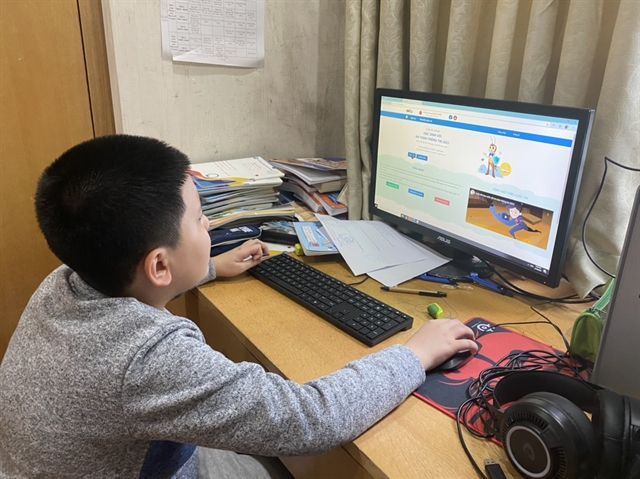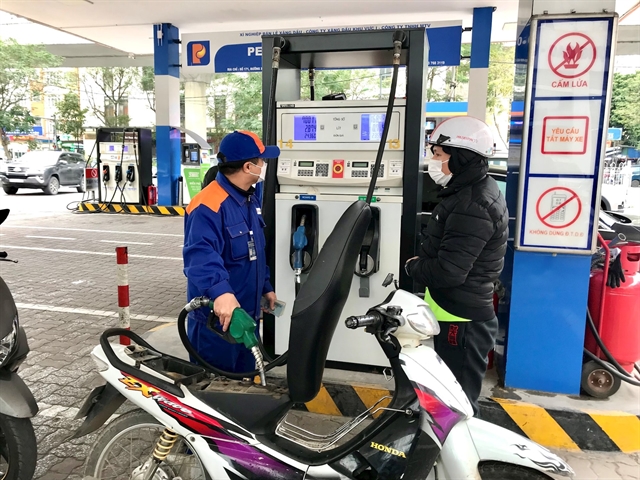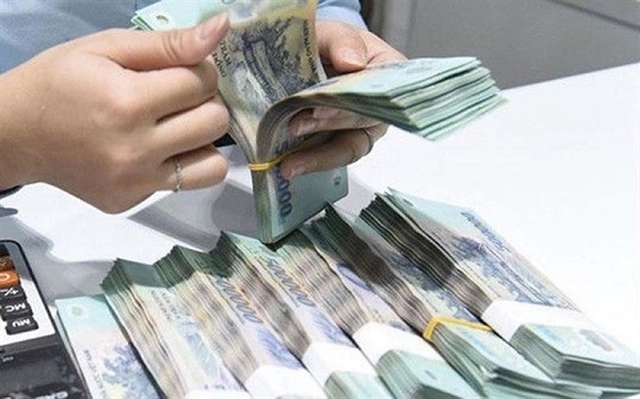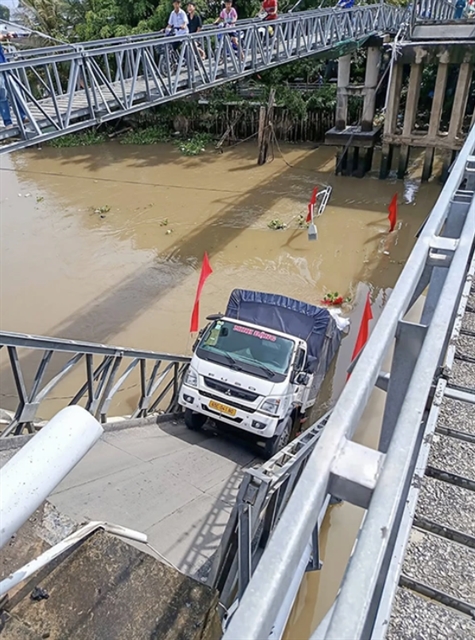 Society
Society


|
| A student was participating in the VNISA's competition on online safety knowledge. — VNA/VNS Photo |
HÀ NỘI — After more than two years of the pandemic, children are more exposed to the internet than ever before. Besides the positive aspects, there are many threats lurking.
"Due to the pandemic, I had to study online," said P.L.M.Đ, a student in Hà Nội. "I was distracted by many games and video clips."
Nguyễn Thu Hiền, a parent, is worried that the internet can have a negative effect on children.
"When I checked my child's computer, I discovered a group chat of students in the class set up to play online games," she said. "They play games even when the teacher is lecturing. Kids even show their friends how to bypass the surveillance of parents and teachers. This is common because parents are busy working and cannot strictly monitor their children."
Việt Nam currently has about 72 million social network accounts and 68.72 million internet users (accounting for 70.3 per cent of the population).
Due to the pandemic, more teenagers used the internet to study, work, communicate and entertain themselves. This increases the risks for young people online, including cyberbullying and gender-based cyber-violence.
"One of our surveys showed that only 10 per cent of children have the adequate knowledge and skills to use the Internet safely," said Đặng Quốc Việt of Plan International Vietnam.
"We need a deeper understanding of the situation and identification of gaps in capacity, legal corridors, and socio-cultural environment to propose appropriate interventions to ensure the safety of children in cyberspace."
A report by one of the members of the Network for Rescue and Protection of Children on the Internet, the Department of Children's Affairs (DCA) of the Ministry of Labour, Invalids and Social Affairs, said that in the first quarter of this year, the National Hotline for Child Protection "111" has received more than 202,000 calls and advised for 10,600 cases.
The number of calls and cases has increased more than 45 per cent compared to the same period in 2021.
DCA statistics also show that in the first three months of this year, 147 children were being abused, an increase of 30 compared to the first quarter of 2021, including cases of violence, sexual abuse and kidnappings.
Cases of child abuse, when received by Hotline 111, are verified and reported to the local authorities for handling.
"Currently, children's online safety is not something the public is widely aware of," said Đặng Hoa Nam, director of the DCA.
"The issue of children is no longer a matter of human rights, but also an issue of economic integration and development. Many countries are ready to set up trade barriers for economies that exploit children."
Việt Nam's Law on Children stipulates the responsibilities of each level, ministry, branch and organisation in child protection.
"The media also plays a pioneering role in raising awareness of stakeholders' responsibilities in child protection," said Nam.
Today, children are educated early about essential skills for living safely. Parents also update their knowledge to protect children online because they are children's main protectors.
To combat domestic violence and sexual abuse, the skills and cooperation of the whole society are needed. This is also the spirit of the message of Action Month for Children: "Join hands to protect children, speak up to prevent and combat child abuse and violence."
"In today's digital world, taking care of and protecting children against risks in cyberspace is the responsibility and obligation of the whole society," said Nguyễn Huy Dũng, deputy minister of Information and Communications.
"Recently, under the impact of the COVID-19 pandemic, implementing social distancing has prevented millions of children from going to school in person but having to study online. Online exposure, learning and entertainment will contribute to the formation of digital citizens. However, being closely tied to computers, phones and the internet, limiting participation in outdoor play also puts children at high risk of information insecurity."
According to statistics, during the pandemic's peak, the number of cyberattacks on educational resources to prevent users from accessing them has increased by 350 per cent compared to the previous year. Elsewhere, online child abuse has also become an alarming problem.
To protect children in cyberspace, at the beginning of June 2021, the Prime Minister approved the programme "Protecting and supporting children to interact healthily and creatively in the online environment in the period of 2021-2025." This is the first time that the country has issued a separate national programme on the issue of child protection online.
The programme aims to protect children's confidential information, privacy, and personal details when they access information, participate in activities online, and prevent and handle harmful acts.
To implement the programme, the Ministry of Information and Communications has also established a network to rescue and protect children in the online environment with the participation of functional units under the Ministry of Information and Communications, the Ministry of Public Security, the Ministry of Education and Training, the Ministry of Labor, Invalids and Social Affairs and many related organisations.
The network is an interdisciplinary coordination organisation aimed at enhancing the effectiveness and efficiency of handling child abuse cases in the online environment. In particular, the Department of Information Security is the coordinating agency of the network to rescue and protect children in the online environment (VN-COP).
In early 2022, the Department of Information Security launched the website vn-cop.vn to spread skills and knowledge about child protection in the online environment.
In collaboration with the Information Security Association (VNISA), the Ministry of Information and Communications also organised the first-ever Student Competition on Information Security in 2022, which attracted more than 600,000 students.
"The overwhelming responses in the contest showed the deep concern of the whole society, of all families, and the awareness of middle school students themselves of the problem," said Nguyễn Thành Hưng, chairman of VNISA.
To accompany government agencies in implementing "Protecting and supporting children to interact healthily and creatively in the online environment for the period of 2021-2025," Plan International Vietnam has worked with Plan International Germany to raise funds for the project "Keeping Children and Teens Safe on the Internet." The project will be completed by July 2024.
The project's main objective is to help young people aged 10-18, especially girls and vulnerable groups, use the internet and social media safely and be protected from the harmful influences of aggression online.
According to Hiền, parents should not hold the sole responsibility of protecting their children. Instead, it requires the collaboration of schools and families.
"Instead of banning it, schools and the education sector should have training courses of information security skills before allowing students to access the internet. At the same time, management agencies and schools should also install software that can monitor and evaluate the safety level when letting students access social networks," said Hiền. — VNS




